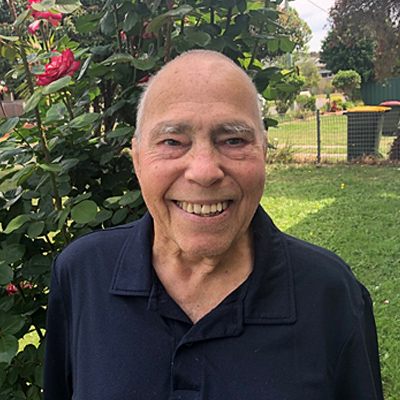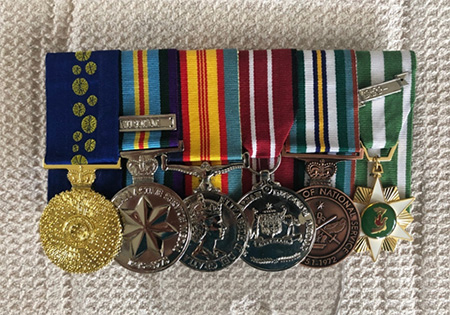
Uncle John was born in 1949 in Surry Hills, NSW, and is the eldest of ten children. His father was a Wiradjuri man from Condobolin and his mother a Jawoyn woman, born in Adelaide. John has since passed away, but he and his wife Yvonne, a nurse, wanted to ensure his story is told.
Uncle John was a dual Olympian and first indigenous wrestler competing in the 1968 Summer Olympics and in the 1972 Summer Olympics. He has also represented his country in Vietnam, serving from 1970–71 as a Gunner in the 4th Field Regiment 106 Battery of the Royal Australian Artillery. As an SAS commando, he exercised all his life and knows what it is like to work and train hard at something. Wrestling is: “survival of the fittest and so strategic.”
He said, “It doesn’t matter what culture you’re from, or what background you are, we’re a multicultural country now and you’re just proud to be Australian.” John has worked as a courier in the past. After he retired, he worked with the Justice system in the community’s Circle Sentencing Program and Koori Court. He has received an OAM for services to youth and wrestling.
Uncle John spent the last two years in and out of hospital, in all different wards, and had many treatments, operations and rehabilitation for cancer, including chemotherapy and radiation.
Uncle John spent months in rehabilitation. He went home and attended the gym and hydrotherapy pool twice a week. He wasn’t keen to do rehabilitation at first, but realised it was the best thing, and enjoyed it very much. He knew that having rehabilitation helps and that you only get better with training. Being a wrestler, he understood that you will only get better with training. He had a philosophy, “You have to think positive all the way through. Fight it all the way!"

What Uncle John learnt from his time in rehab
- It’s a proper exercise regime.
- There are good, professional people looking after you (e.g. surgeons, doctors, nurses, physiotherapists).
- It’s a good environment.
- There is good communication between everyone.
- There’s a gym, treadmill and pool.
- There is a routine and it gives you something to work on.
Top tips for other Aboriginal people
- “Do it. Go!”
- Sometimes it’s hard work – but you have to keep going.
- It can be a good experience.
- It is good when the nurses get to know you.
- It’s important to do the exercises and get the muscles going.
- You have supportive health professionals who treat you with respect, and talk to you.
- Expensive for some – not cheap.
- Don’t leave hospital if you’re sick.